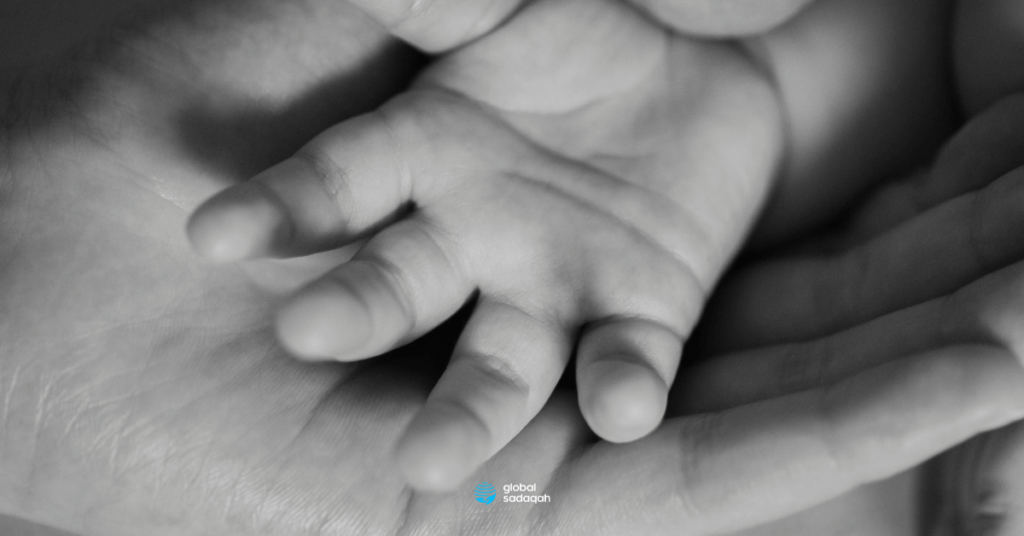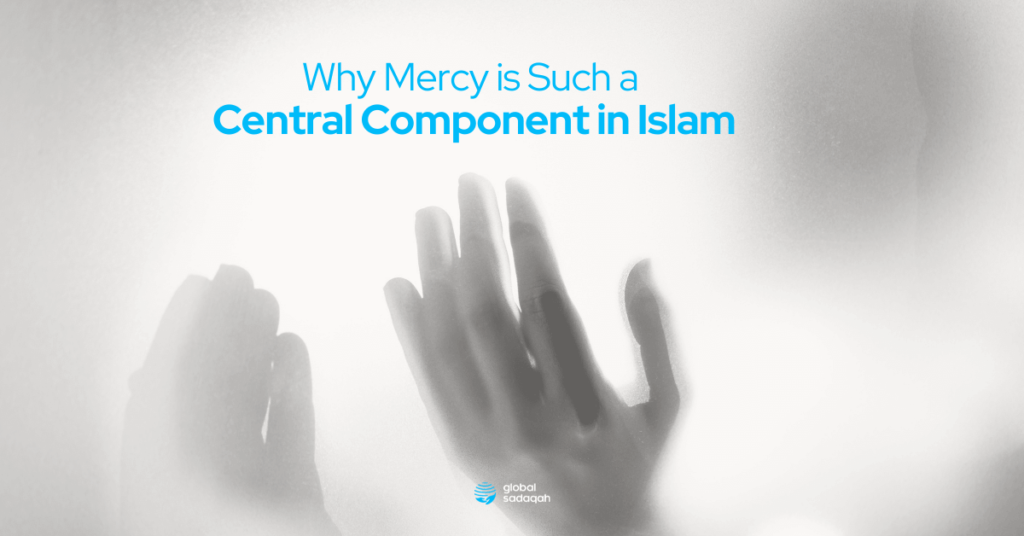While mercy is indeed a central part of many religions around the world, it stands out quite uniquely from an Islamic perspective. Most of us understand the term mercy in the context of the English language, and it is used throughout many Muslim communities to describe the extent of its prominence in Islam.
However, Allah’s version of mercy stretches far above the conventional use of the word in many ways. The Almighty Creator’s mercy has a more comprehensive depth to it, which is what lays the foundation for many teachings in Islam.
Related: The Virtue of Sabr in Ramadan
Islam is a religion of mercy

First off, it’s important to begin with the notion that Islam prioritises mercy as one of the most noble values.
Allah’s Messenger (ﷺ) kissed Al-Hasan ibn `Ali while Al-Aqra` ibn Habis At-Tamim was sitting with him. Al-Aqra` said, “I have ten children and have never kissed one of them. The Prophet (ﷺ) cast a look at him and said, “Whoever is not merciful to others will not be treated mercifully.” [Bukhari]
This Hadith depicts the extent of which the Prophet (ﷺ) emphasised on mercy being at the forefront of all Muslims’ actions. In fact, much of what we know about his life revolves around the great tolerance, wisdom, and mercy that the Prophet (ﷺ) constantly showed. It was part of what made him the greatest leader and the greatest person to ever live.
Mercy is a central pillar of leadership

We live in a world today where many cultural expectations of a leader have to do with some elements of over-assertive dominance. To be the best, to be at the top, and to be relentless or vicious in the way one leads, are all notions that often form positive connotations in the modern context.
What’s missing very often is the element of mercy or tolerance, and the indisputable soft power that such characteristics retain.
Robert K. Greenleaf’s concept of Servant Leadership may be a more accurate modern description of a good leader, where empathy and care are prioritised. Leaders are supposed to connect with and care about the wellbeing of their followers, above other objectives like organisational profitability for instance. Many great leaders today give credit to the servant leadership approach to getting them where they are.
Likewise, the aspect of mercy in Islam can be associated with being a good leader, in the same way that leaders of the modern age should be encouraged to practice mercy upon subordinates.
The significance of Rahmah

The first description given of Allah in the Holy Quran is Ar-Rahman ar-Raheem. This phrase is often translated as “The most gracious most merciful” or the “The most beneficent most kind” among others.
Both Rahman and Raheem are derived from the root word “rahmah” which is what many translations often state as “mercy”. However, the word mercy does not do justice to rahmah because there are connotations with mercy as an English word that do not match well with the Arabic word rahmah.
In fact, mercy has a negative connotation that leads to phrases that are used to depict how the source of mercy has the ability to inflict damage or cause harm to the subject but decided not to.
Here’s what the Oxford Advanced Learner’s Dictionary has stated about the definition of mercy:
A kind and forgiving attitude towards somebody that you have the power to harm or right to punish.
a) to ask/beg/plead for mercy
b) They showed no mercy to their hostages.
c) God have mercy on us.
d) The troops are on a mercy mission (a journey to help people) in the war zone.
An event or a situation to be grateful for, usually because it stops something unpleasant.
a) It’s a mercy she wasn’t seriously hurt.
b) His death was a mercy (because he was in great pain).
It’s clear that the English word of mercy is almost suggestively linked to a sort of insincere obligation to refrain from damaging a subject.
However, when describing rahmah, the Prophet (ﷺ) did not portray such underlying fear and dread. Instead, he referred more to an Arabic word that drew associations with expressions like compassion or nurturing love.
The core idea of nurturing, parental love shows out in the Prophet’s (ﷺ) various sayings about rahmah on earth. According to the Messenger (ﷺ), Allah’s rahmah is the single source of all earthly rahmah, as all creatures display love and kindness to one another, and even a beast treats her young affectionately. As a result, Rahmah finds its most natural manifestation in a mother’s love.
And no one can compare to the love of a mother, except for Allah, of course.
The Quran is a mercy upon the world

One of the most prominent reasons mercy is a central component in Islam can be seen in the Quran itself, which has often been described as a mercy for all of mankind. The word of Allah comprises many verses, and quite a few of them point directly suggesting that Islam and the Quran are brought down to us as a show of mercy from Allah.
Many verses in the Quran also point to the abundant evidence of Allah’s existence, or of the truth that is Islam, so that we may understand and acknowledge Islam as the way of truth.
In the Quran, Allah says:
[Prophet], when your Lord took out the offspring from the loins of the Children of Adam and made them bear witness about themselves, He said, ‘Am I not your Lord?’ and they replied, ‘Yes, we bear witness.’ So you cannot say on the Day of Resurrection, ‘We were not aware of this.’ [Surah Al-A’raf, 172]
This important factor is crucial to our spiritual wellbeing, and for us to acknowledge our only saviour in the grand scheme.
This is why the Quran is a mercy, for it shows us the path to Allah with clarity and conviction. Without the Quran and the Prophet (ﷺ) on this earth we would be without guidance. Thus, it is safe to say that Allah granted us that mercy.
The concept of mercy as contextualised in the Quran and within Islam as a whole is actually a deep topic that can be discussed at full length. This shows just how comprehensive Islam is in its depth, and it also shows how mercy is such a strong attribute that Muslims must adhere to.

